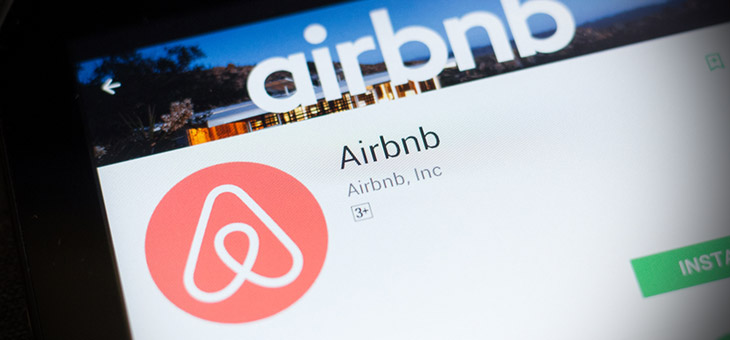Airbnb is spreading like a virus, particularly around coastal towns and popular beachside holiday spots. But is the rising tide of Airbnb-listed accommodation good for Aussie tourism, or will the virus kill the system?
Almost 20 per cent of all Byron Bay properties are now listed on Airbnb, and in Queensland’s coastal regions, the number of Airbnb-listed properties has doubled in the past 18 months. Around four per cent of houses on Melbourne’s Mornington Peninsula are listed, as are two per cent of Sunshine Coast properties and 5.4 per cent in Busselton, Western Australia.
Airbnb is spreading everywhere but, according to tourism expert David Beirman, its growth is particularly focused on coastal suburbs.
“It’s not just happening in Byron Bay. Everywhere where there’s a shortage of traditional accommodation, there’s growth of Airbnb,” said Mr Beirman.
“In NSW this includes Coogee, Maroubra and Matraville – a lot of the beachside suburbs as well as Palm Beach and Avalon – and Airbnb probably contributes to about 30 per cent of all accommodation in the Randwick region.”
While Airbnb listings offer more accommodation options – often at low prices – the benefit to travellers comes at a cost to the community.
Traditional accommodation providers, such as hotels, motels and registered BNBs, are suffering from being overrun by Airbnb and are being forced to reduce prices and accept lower profit margins to stay competitive. Not doing so often means they lose business altogether.
“Our business is down 50 per cent on last year. This is our only source of income,” said one owner of a boutique bed and breakfast in Launceston, Tasmania.
“I’m not against Airbnb. It has its place, but it’s grown so quickly and there are just too many listings. We’re now competing with 500 other places. We can’t sustain that.”
And it’s not just accommodation providers that are being hurt by Airbnb. Local businesses and communities are simply not set up to handle the extra load incurred by an overload of tourists in the area, pushing public transport, restaurants and local amenities beyond their capacity.
The increasing number of Airbnbs means no one can ever know the number of visitors in an area, which in turn, means local businesses can’t plan for the influx or lack thereof.
“These have previously met the maximum number of hotel beds; however, as visitors increase due to more availability of beds [through Airbnb], … there is no certainty anymore of knowing what the maximum number [of beds] could be with Airbnb,” said tourism expert Karen Hofman.
“To meet the growing numbers, either businesses need to expand or more businesses need to open. That creates more competition and, given many destinations are seasonal, could potentially cause businesses to shut down due to an oversupply of services during the quieter times.
“Airbnb has its place in the market as it encourages competitiveness. However, there is a tipping point at which it is no longer of benefit to the consumer, local businesses, local residents or a destination.”
To combat this very thing happening to Byron Bay, the council has announced new laws that will impose massive fines on unregistered Airbnb listings. Non-compliance will mean risking $3000 fines for individuals or $6000 for companies.
“Due to Byron Shire’s popularity as a tourist destination, many people now see short-term holiday letting as their opportunity to make money on their property from tourism and in some cases, this can come at a cost to the community,” said Byron Shire Mayor Simon Richardson.
“There are hundreds of approved tourism accommodation providers in the Byron Shire who do the right thing with respect to approvals, safety and compliance.
“Something needs to be done to protect our community’s right to residential areas that are filled with neighbours not tourists.”
Do you think Byron Bay council is overreacting? Or can you see the rationale behind such a heavy-handed reaction? Do you use Airbnb?
Related articles:
Airbnb: Great until it’s not
Airbnb: Find out if it works
Kaye’s Airbnb horror show

